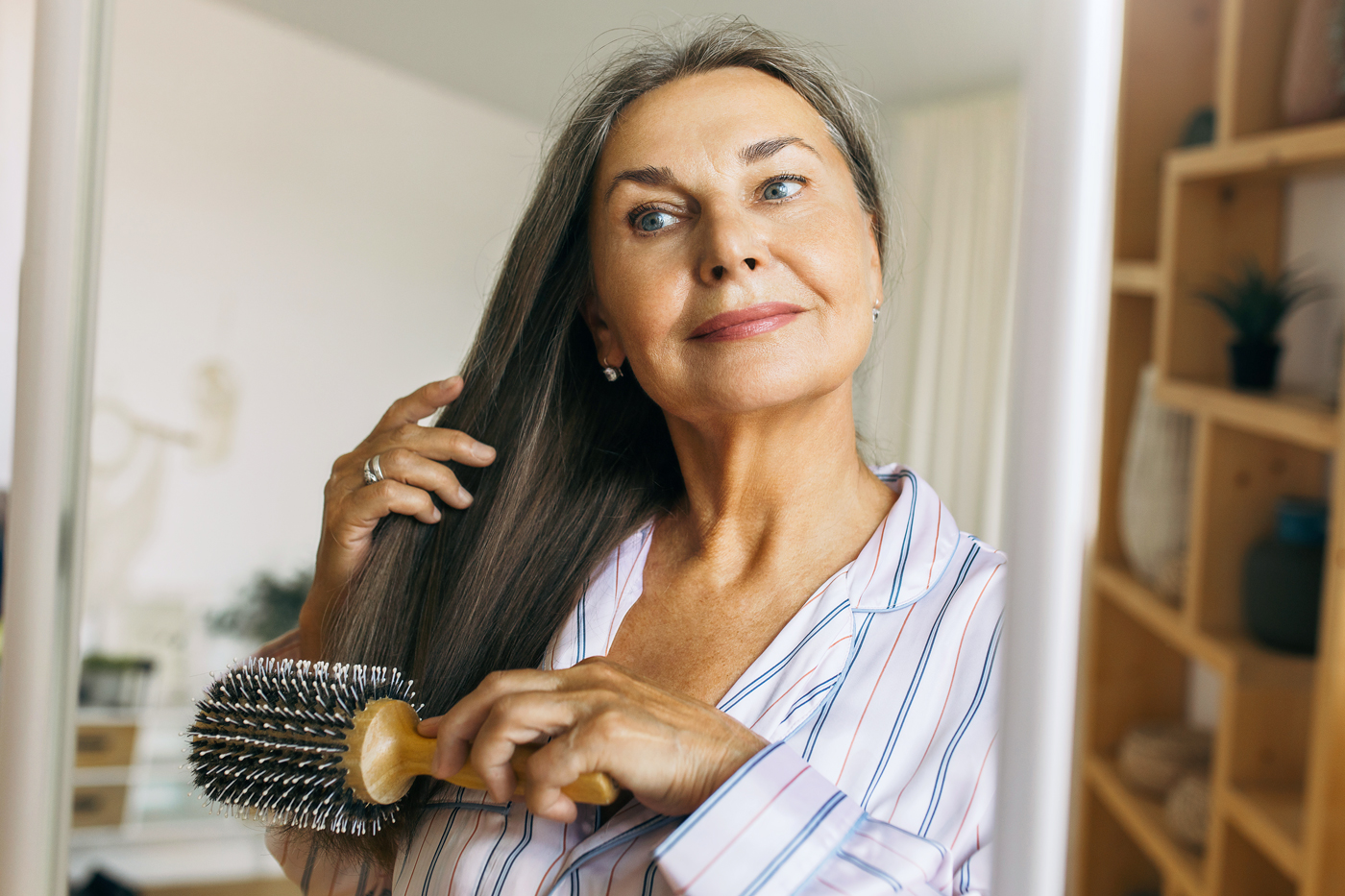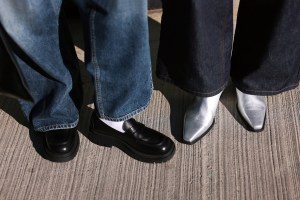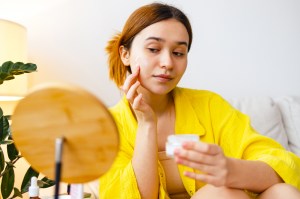We independently evaluate all recommended products and services. If you click on links we provide, we may receive compensation.
Conventional wisdom — and, in many cases, experience — tells us that once you spot your first silver strand, there’s not a whole lot you can do to slow or stop the process. But over the past year, we’ve seen an influx of hair care products designed to inhibit or even reverse graying. If you’ve seen the videos on social media, you’ve probably found yourself wondering: Do they work?
It’s possible, board-certified trichologist Gretchen Friese says. “As we age, we stop producing as many melanocytes as we did in our youth,” she explains. This natural process is the most well-known cause of graying hair, and when it begins is primarily determined by your genetics. However, your genes aren’t the only factor at play: Stress and certain medical conditions can cause your hair to turn silver, too. Stress, research shows, can damage your mitochondria — which can, in turn, affect your hair’s ability to produce pigment. (Worth noting: Mitochondrial damage can also accelerate skin aging.) You can’t stop the natural aging process, but certain products may be able to halt or repair the mitochondrial damage that causes premature graying.
Friese praises the BoselyMD Women’s Revive+ Densifying Treatment Foam, which she says “gets into the mitochondria of the cells of the hair follicles and gives them more energy” to help slow graying. Vegamour’s Gro Ageless Anti-Gray Hair Serum also shows promise, with one Reddit reviewer saying she “saw results pretty quickly.” Aray is another popular choice as the brand combines supplements and topical treatments to target current grays and ones that haven’t popped up yet.
Of course, not every product will work in the same way for everyone, and some causes of graying — such as genetics — can’t fully be reversed. That said, if you’re going gray rapidly or earlier than expected, Friese recommends trying to control your stress levels to see if that helps. If not, consider scheduling a visit with your doctor. They can determine if any underlying conditions are causing your strands to lose their natural pigment.
This article is for general informational purposes only.
Affiliate Disclaimer Medical Disclaimer
















 Unique Beauty is free for all users.
Unique Beauty is free for all users.